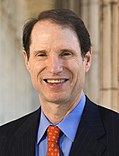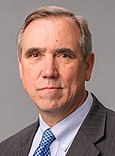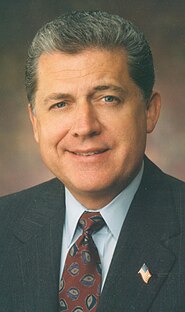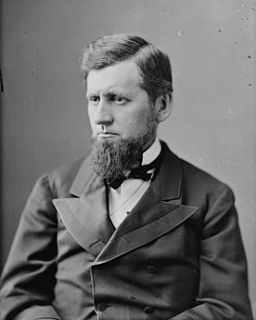Class 2 Class 2 U.S. senators belong to the electoral cycle that has recently been contested in 1996, 2002, 2008, and 2014. The next election will be in 2020. | C
o
n
g
r
e
s
s | Class 3 Class 3 U.S. senators belong to the electoral cycle that has recently been contested in 1998, 2004, 2010, and 2016. The next election will be in 2022. |
|---|
| # | Senator | Party | Years in office | Electoral history | T
e
r
m | T
e
r
m | Electoral history | Years in office | Party | Senator | # |
|---|
| 1 | 
Delazon Smith | Democratic | February 14, 1859 –
March 3, 1859 | Elected in 1859.
Lost re-election. | 1 | 35th | 1 | Elected in 1859.
Retired. | February 14, 1859 –
March 3, 1861 | Democratic | 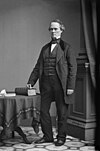
Joseph Lane | 1 |
|---|
| Vacant | March 3, 1859 –
October 1, 1860 | Legislature failed to elect. | 2 | 36th |
| 2 | 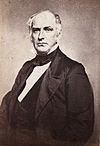
Edward D. Baker | Republican | October 1, 1860 –
October 21, 1861 | Elected late in 1860.
Died. |
|---|
| 37th | 2 | Election year unknown.
Lost re-election. | March 4, 1861 –
March 3, 1867 | Democratic | 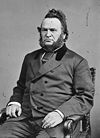
James Nesmith | 2 |
|---|
| Vacant | October 21, 1861 –
February 27, 1862 | |
| 3 | 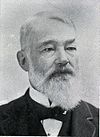
Benjamin Stark | Democratic | February 27, 1862 –
September 12, 1862 | Appointed to continue Baker's term.
Retired when successor elected. |
|---|
| 4 | 
Benjamin F. Harding | Democratic | September 12, 1862 –
March 3, 1865 | Elected to finish Baker's term.
Retired. |
|---|
| 38th |
| 5 | 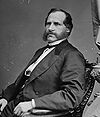
George H. Williams | Republican | March 4, 1865 –
March 3, 1871 | Elected in 1864.
Lost re-election. | 3 | 39th |
|---|
| 40th | 3 | Election year unknown.
Retired. | March 4, 1867 –
March 3, 1873 | Republican | 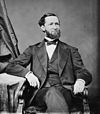
Henry W. Corbett | 3 |
|---|
| 41st |
| 6 | 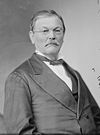
James K. Kelly | Democratic | March 4, 1871 –
March 3, 1877 | Elected in 1870.
Retired. | 4 | 42nd |
|---|
| 43rd | 4 | Elected in 1872.
Lost re-election. | March 4, 1873 –
March 3, 1879 | Republican | 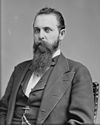
John H. Mitchell | 4 |
|---|
| 44th |
| 7 | 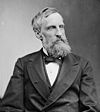
La Fayette Grover | Democratic | March 4, 1877 –
March 3, 1883 | Election year unknown.
Retired. | 5 | 45th |
|---|
| 46th | 5 | Election year unknown.
Retired. | March 4, 1879 –
March 3, 1885 | Democratic | 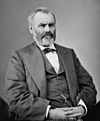
James H. Slater | 5 |
|---|
| 47th |
| 8 | 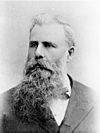
Joseph N. Dolph | Republican | March 4, 1883 –
March 3, 1895 | Elected in 1882. | 6 | 48th |
|---|
| 49th | 6 | | March 3, 1885 –
November 18, 1885 | Vacant |
| Elected late in 1885. | November 18, 1885 –
March 3, 1897 | Republican | 
John H. Mitchell | 6 |
|---|
| 50th |
Re-elected in 1888.
Lost re-election. | 7 | 51st |
| 52nd | 7 | Re-elected in 1890.
Lost re-election. |
| 53rd |
| 9 | 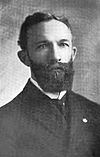
George W. McBride | Republican | March 4, 1895 –
March 3, 1901 | Elected February 23, 1895. [4]
Lost renomination. | 8 | 54th |
|---|
| 55th | 8 | | March 3, 1897 –
October 7, 1898 | Vacant |
Elected late in 1898.
Retired. | October 7, 1898 –
March 3, 1903 | Republican | 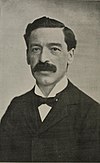
Joseph Simon | 7 |
|---|
| 56th |
| 10 | 
John H. Mitchell | Republican | March 4, 1901 –
December 8, 1905 | Elected February 24, 1901.
Died. | 9 | 57th |
|---|
| 58th | 9 | Elected February 21, 1903. [5]
Lost re-election. | March 4, 1903 –
March 3, 1909 | Republican | 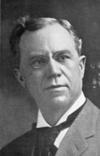
Charles W. Fulton | 8 |
|---|
| 59th |
| Vacant | December 8, 1905 –
December 21, 1905 | |
| 11 | 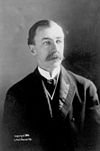
John M. Gearin | Democratic | December 21, 1905 –
January 23, 1907 | Appointed to continue Mitchell's term.
Retired when successor elected. |
|---|
| 12 | 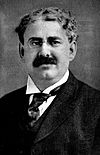
Frederick W. Mulkey | Republican | January 23, 1907 –
March 3, 1907 | Elected to finish Mitchell's term. [6] [7]
Retired. |
|---|
| 13 | 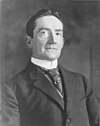
Jonathan Bourne, Jr. | Republican | March 4, 1907 –
March 3, 1913 | Elected January 22, 1907. [6] [7]
Lost renomination. | 10 | 60th |
|---|
| 61st | 10 | Elected January 19, 1909. [7] | March 4, 1909 –
March 3, 1921 | Democratic | 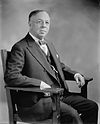
George E. Chamberlain | 9 |
|---|
| 62nd |
| 14 | 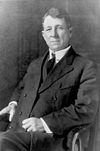
Harry Lane | Democratic | March 4, 1913 –
May 23, 1917 | Elected January 21, 1913. [7]
Died. | 11 | 63rd |
|---|
| 64th | 11 | Re-elected in 1914.
Lost re-election. |
| 65th |
| Vacant | May 23, 1917 –
May 29, 1917 | |
| 15 | 
Charles L. McNary | Republican | May 29, 1917 –
November 5, 1918 | Appointed to continue Lane's term.
Not elected to finish Lane's term. |
|---|
| 16 | 
Frederick W. Mulkey | Republican | November 6, 1918 –
December 17, 1918 | Elected to finish Lane's term.
Resigned early to give successor preferential seniority. |
|---|
| 17 | 
Charles L. McNary | Republican | December 18, 1918 –
February 25, 1944 | Appointed to finish Lane/Mulkey's term, having already been elected to the next term. |
|---|
| Elected in 1918. | 12 | 66th |
| 67th | 12 | Elected in 1920.
Lost re-election. | March 4, 1921 –
March 3, 1927 | Republican | 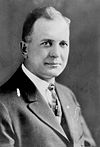
Robert N. Stanfield | 10 |
|---|
| 68th |
| Re-elected in 1924. | 13 | 69th |
| 70th | 13 | Elected in 1926. | March 4, 1927 –
January 31, 1938 | Republican | 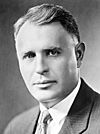
Frederick Steiwer | 11 |
|---|
| 71st |
| Re-elected in 1930. | 14 | 72nd |
| 73rd | 14 | Re-elected in 1932.
Resigned. |
| 74th |
| Re-elected in 1936. | 15 | 75th |
| | January 31, 1938 –
February 11, 1938 | Vacant |
Appointed to continue Steiwer's term.
Retired when successor elected. | February 11, 1938 –
November 9, 1938 | Democratic | 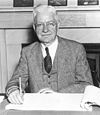
Alfred E. Reames | 12 |
|---|
Elected to finish Steiwer's term.
Retired. | November 9, 1938 –
January 3, 1939 | Republican | 
Alexander G. Barry | 13 |
|---|
| 76th | 15 | Elected in 1938.
Lost renomination. | January 3, 1939 –
January 3, 1945 | Republican | 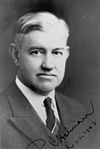
Rufus C. Holman | 14 |
|---|
| 77th |
Re-elected in 1942.
Died. | 16 | 78th |
| Vacant | February 25, 1944 –
March 13, 1944 | |
| 18 | 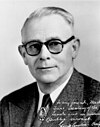
Guy Cordon | Republican | March 13, 1944 –
January 3, 1955 | Appointed to continue McNary's term.
Elected November 7, 1944 to finish McNary's term. |
|---|
| 79th | 16 | Elected in 1944. | January 3, 1945 –
January 3, 1969 | Republican [8] | 
Wayne Morse | 15 |
|---|
| 80th |
Re-elected in 1948.
Lost re-election. | 17 | 81st |
| 82nd | 17 | Re-elected in 1950. |
| Independent [8] |
| 83rd |
| 19 | 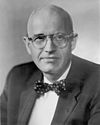
Richard L. Neuberger | Democratic | January 3, 1955 –
March 9, 1960 | Elected in 1954.
Died. | 18 | 84th | Democratic [8] |
|---|
| 85th | 18 | Re-elected in 1956. |
| 86th |
| Vacant | March 9, 1960 –
March 23, 1960 | |
| 20 | 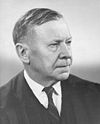
Hall S. Lusk | Democratic | March 23, 1960 –
November 9, 1960 | Appointed to continue Neuberger's term.
Retired when successor elected. |
|---|
| 21 | 
Maurine Brown Neuberger | Democratic | November 9, 1960 –
January 3, 1967 | Elected to finish her husband's term. |
|---|
Elected to full term in 1960.
Retired. | 19 | 87th |
| 88th | 19 | Re-elected in 1962.
Lost re-election. |
| 89th |
| 22 | 
Mark Hatfield | Republican | January 3, 1967 –
January 3, 1997 | Elected in 1966. | 20 | 90th |
|---|
| 91st | 20 | Elected in 1968. | January 3, 1969 –
October 1, 1995 | Republican | 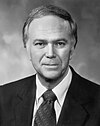
Bob Packwood | 16 |
|---|
| 92nd |
| Re-elected in 1972. | 21 | 93rd |
| 94th | 21 | Re-elected in 1974. |
| 95th |
| Re-elected in 1978. | 22 | 96th |
| 97th | 22 | Re-elected in 1980. |
| 98th |
| Re-elected in 1984. | 23 | 99th |
| 100th | 23 | Re-elected in 1986. |
| 101st |
Re-elected in 1990.
Retired. | 24 | 102nd |
| 103rd | 24 | Re-elected in 1992.
Resigned. |
| 104th |
| | October 1, 1995 –
February 6, 1996 | Vacant |
| Elected to finish Packwood's term. | February 6, 1996 –
Present | Democratic | 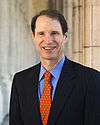
Ron Wyden | 17 |
|---|
| 23 | 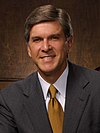
Gordon Smith | Republican | January 3, 1997 –
January 3, 2009 | Elected in 1996. | 25 | 105th |
|---|
| 106th | 25 | Re-elected in 1998. |
| 107th |
Re-elected in 2002.
Lost re-election. | 26 | 108th |
| 109th | 26 | Re-elected in 2004. |
| 110th |
| 24 | 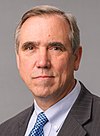
Jeff Merkley | Democratic | January 3, 2009 –
Present | Elected in 2008. | 27 | 111th |
|---|
| 112th | 27 | Re-elected in 2010. |
| 113th |
| Re-elected in 2014. | 28 | 114th |
| 115th | 39 | Re-elected in 2016. |
| 116th |
| To be determined in the 2020 election. | 29 | 117th |
| 118th | 29 | To be determined in the 2022 election. |
| # | Senator | Party | Years in office | Electoral history | T
e
r
m | | T
e
r
m | Electoral history | Years in office | Party | Senator | # |
|---|
| Class 2 | Class 3 |
|---|





